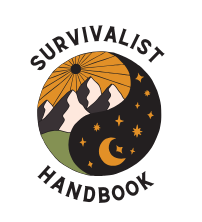In times of emergencies, it is crucial to have the knowledge and preparation to shelter in place effectively. Whether you are a survival enthusiast or simply want to ensure your safety, understanding how to build bug out shelters and employing shelter in place tips can make all the difference. This article will guide you through important techniques and strategies to keep yourself and your loved ones protected during challenging circumstances. From creating secure shelters to implementing safety measures, these tips will equip you with the knowledge needed to stay safe and secure in the face of emergencies.

Preparing your home
Stock up on supplies
Before an emergency or natural disaster strikes, it is important to stock up on essential supplies. Make a list of items that you and your family will need, such as non-perishable food items, bottled water, batteries, flashlights, and a first aid kit. Having these supplies on hand will ensure that you are prepared and can sustain yourself for an extended period of time if necessary.
Create an emergency kit
Putting together an emergency kit is a crucial step in preparing your home for any unforeseen event. This kit should include items like a battery-powered radio, extra batteries, a portable phone charger, a flashlight, a whistle, a multi-purpose tool, and a supply of any necessary medications. Keep these items in a designated location that is easily accessible to all household members.
Secure your home
During an emergency, it is important to ensure that your home is secure to protect yourself and your belongings. Check all doors, windows, and locks to make sure they are in good working condition. Consider reinforcing doors and windows with security film or installing sturdy deadbolts. By taking these precautions, you can have peace of mind knowing that your home is well-protected.
Identify a safe room
In the event of severe weather or another emergency situation, it is important to have a designated safe room where you can seek shelter. This room should be located in the interior of your home, away from windows, and preferably on the ground floor. Stock the room with essential supplies, such as a first aid kit, flashlights, and a battery-powered radio, so you can hunker down safely until the situation improves.
Communication and information
Keep a battery-powered radio
During emergencies, power outages are common, making it difficult to access news and updates. Keep a battery-powered radio in your home so you can stay informed about the latest developments and safety instructions. Tune in to local emergency stations for updates and important information. Having a radio on hand will ensure that you are aware of any evacuation orders or other crucial details.
Charge your electronic devices
In today’s digital age, our smartphones and other electronic devices are lifelines to the outside world. Before an emergency occurs, make sure to fully charge all of your devices, including cell phones, tablets, and laptops. Consider investing in a portable phone charger or power bank, as this will allow you to recharge your devices even if the power is out.
Have emergency contact numbers
It is important to have a list of emergency contact numbers readily available. Include local emergency services, family members, neighbors, and a designated out-of-town contact person. Having these numbers written down and easily accessible will save time and stress during an emergency when you may not have access to your digital devices.
Stay informed with reliable sources
During a crisis, it is crucial to stay informed, but it is equally important to rely on accurate and reliable sources of information. Avoid spreading rumors or unverified information, as this can cause panic and confusion. Instead, follow updates from official sources such as local government agencies, national weather services, and reputable news organizations.
Food and water
Store non-perishable food
When preparing for an emergency, it is important to have an ample supply of non-perishable food items. Canned goods, dry fruits, nuts, granola bars, and peanut butter are all great options that have a long shelf life. Ensure that you have enough food to sustain your family for at least three days. Remember to regularly check the expiration dates of your stored food and rotate them out as needed.
Have a supply of clean water
Clean drinking water is essential for survival during an emergency. It is recommended to have at least one gallon of water per person per day for drinking and sanitation purposes. Store water in clean, sealed containers and replace it every six months. If you have space, consider investing in a water storage tank or water purification system for extended emergencies.
Learn to purify water
In the event that clean water supplies run low, it is important to know how to purify water from alternative sources. There are several methods to purify water, including boiling, using water purification tablets, or using water filters. Research and familiarize yourself with these techniques so that you are prepared to make any water safe to drink.
Plan meals in advance
During an emergency, it can be stressful to figure out what to eat. Make a meal plan in advance and create a menu that consists of the non-perishable food items you have stocked up on. This will help reduce mealtime decisions and eliminate additional stress during a crisis. Preparing meals that are easy to make without access to electricity or gas is also important.
Hygiene and sanitation
Stock up on toiletries
In addition to food and water, it is important to stock up on essential toiletries. Items such as toilet paper, soap, toothpaste, feminine hygiene products, and diapers (if applicable) should be included in your emergency supplies. Make sure to have an ample supply to last several weeks or months, as availability during a crisis may be limited.
Maintain cleanliness
During an emergency, it is important to maintain good hygiene practices to prevent the spread of germs and illness. Wash your hands frequently with soap and water for at least 20 seconds. If water is scarce, use hand sanitizer that contains at least 60% alcohol. Keep your living area clean and disinfect commonly touched surfaces regularly.
Dispose of waste properly
Proper waste disposal is crucial during an emergency to maintain a sanitary living environment. If your regular waste collection services are disrupted, establish a designated area for disposing of trash. Use sturdy garbage bags and secure them tightly to prevent animals from accessing the waste. If possible, burying or burning waste in a safe manner can be an option.
Create a sanitation station
In the absence of running water, it is important to create a sanitation station. This can be as simple as a bucket with a tight-fitting lid and a plastic trash bag lined inside to be used as a makeshift toilet. Include disinfectants, wet wipes, and hand sanitizer nearby for cleaning and maintaining hygiene. Follow proper disposal procedures to dispose of waste from the sanitation station.

Health and first aid
Keep a first aid kit
Having a well-stocked first aid kit is essential in any emergency situation. Include items such as bandages, antiseptic wipes, pain relievers, adhesive tape, scissors, tweezers, and any necessary prescription medications. Review the contents of your first aid kit regularly and replace any expired or depleted items. Familiarize yourself with basic first aid procedures.
Have necessary medications
If you or your family members require regular prescription medications, make sure you have an ample supply on hand. Consider speaking with your healthcare provider to arrange for an emergency supply or an alternative means of obtaining your medications in case of disruption to regular services. Keep track of expiration dates and refill your stockpile as needed.
Learn basic first aid skills
Emergencies can happen at any time, and having a basic understanding of first aid can make a significant difference in the outcome. Consider taking a first aid certification course to learn skills such as CPR, treating wounds, and responding to common medical emergencies. Having this knowledge can provide you with the confidence and ability to help others in need.
Monitor your health
During a crisis, it is important to monitor your health and the health of your family members. Keep track of any symptoms or changes in health and seek medical attention if necessary. Take the time to rest and prioritize self-care to maintain your overall well-being. Stay informed about any health advisories or updates from local authorities.
Staying entertained
Gather books and puzzles
Being confined to your home for an extended period of time can be challenging, but staying entertained can help pass the time. Collect books, puzzles, and board games to keep yourself and your family members engaged. Reading can transport you to different worlds, while puzzles and games provide mental stimulation and enjoyment.
Download movies or TV shows
In today’s digital age, entertainment options are endless. Prior to an emergency, consider downloading movies, TV shows, or documentaries onto your electronic devices. Having access to these forms of entertainment can help keep spirits high and provide a welcome distraction during stressful times.
Engage in hobbies and crafts
Use the time spent sheltering in place to explore or rediscover hobbies and crafts. Whether it’s painting, knitting, gardening, or playing a musical instrument, engaging in activities that bring you joy can help alleviate stress and pass the time in a meaningful way. Consider trying out new hobbies to expand your skills and creativity.
Stay connected with loved ones
During an emergency, it is important to stay connected with your loved ones despite physical distance. Use technology to your advantage and stay in touch through phone calls, video chats, or social media. Sharing experiences, providing support, and simply hearing familiar voices can help maintain a sense of community and emotional well-being.
Maintaining mental well-being
Follow a routine
During times of uncertainty, establishing and following a daily routine can provide a sense of normalcy and stability. Try to wake up and go to bed at consistent times, schedule activities and meals, and set aside time for relaxation and self-care. Having a routine can help reduce stress and make your days feel more structured.
Practice relaxation techniques
Stress and anxiety are common during emergencies, and it is important to prioritize your mental well-being. Practice relaxation techniques such as deep breathing exercises, meditation, or yoga to help calm your mind and body. Taking breaks and engaging in activities that help you relax can promote a sense of tranquility during challenging times.
Stay positive and hopeful
Maintaining a positive outlook and hopeful mindset can greatly impact your mental well-being. Focus on the things that you are grateful for and remind yourself that the situation will improve over time. Surround yourself with positive influences, whether it’s uplifting music, inspiring books, or connecting with people who radiate positivity.
Engage in mindfulness activities
Mindfulness activities can help center your mind and bring you into the present moment. Practice mindfulness through activities such as journaling, coloring, or walking in nature. Pay attention to your surroundings, focus on your senses, and take time to appreciate the small joys in life.
Security and safety
Secure doors and windows
Ensuring the security of your home is essential during an emergency. Check all doors and windows to make sure they are properly locked and secure. Reinforce weak points by adding extra locks or bars if necessary. Consider installing security cameras or an alarm system to deter potential intruders. Taking these precautions will help protect your home and provide peace of mind.
Have a backup power source
Power outages are common during emergencies, so having a backup power source can be invaluable. Consider investing in a generator or alternate power source that can provide electricity to essential appliances and devices. Make sure to follow safety guidelines and operate these backup power sources in a well-ventilated area to prevent the risk of carbon monoxide poisoning.
Create an emergency plan
Having an emergency plan in place can help you and your family stay safe and organized during a crisis. Discuss and establish evacuation routes, meeting points, and contact information. Assign responsibilities and tasks to each family member to ensure everyone knows what to do in an emergency. Regularly review and practice your emergency plan to maintain readiness.
Stay vigilant against scams or burglaries
Unfortunately, emergencies can also bring out individuals who try to take advantage of vulnerable situations. Be cautious of scams and fraudulent activities during an emergency. Avoid sharing personal or financial information with unknown sources. Keep an eye out for suspicious activities in your neighborhood and report any concerns to the local authorities.
Pet care
Prepare for your pet’s needs
If you have pets, it is important to include them in your emergency preparedness planning. Stock up on food, water, and any necessary medications for your pets. Have their identification tags updated with current contact information. Consider microchipping your pets as an added precaution. Always have a carrier or leash ready to transport your pet if evacuation becomes necessary.
Create a safe space for your pet
Pets may become stressed or anxious during an emergency, so creating a safe space for them is essential. Identify a designated area in your home where your pets can feel secure. Place comfortable bedding, toys, and familiar items in this space. Ensure that the area is free from hazards and access to harmful substances.
Keep a supply of pet food
Include a sufficient supply of pet food in your emergency preparedness kit. Store the food in a cool, dry place and rotate it regularly to ensure freshness. If your pet requires a special diet or has specific dietary restrictions, make sure to have an adequate supply of their food. Consider adding treats to help keep your pet’s spirits up during difficult times.
Have essential pet supplies
In addition to food, it is important to have essential pet supplies on hand. Include items such as water bowls, extra leashes and collars, litter boxes and litter, bedding, towels, and waste disposal bags. Having these supplies readily available will ensure that you can meet your pet’s needs and keep them comfortable throughout the emergency.
Children and elderly care
Prepare activities for children
During a crisis, children may feel anxious or scared. It is important to prepare age-appropriate activities and distractions to help keep them occupied and calm. Include items such as coloring books, puzzles, games, and favorite toys. Engage in storytelling or educational activities to provide a sense of normalcy and promote learning.
Ensure seniors’ safety and comfort
If you have elderly family members in your household, it is crucial to prioritize their safety and comfort. Ensure that their living space is well-equipped with necessary items such as mobility aids, medications, and emergency supplies. Check in regularly to assess their physical and emotional well-being and address any concerns promptly. Reach out to community resources or support networks to provide additional assistance if needed.
Have necessary medications for the elderly
If there are elderly individuals in your household, make sure they have an ample supply of necessary medications. Keep a list of their medications, doses, and any allergies easily accessible in case of emergency. Work with their healthcare providers to develop a plan for obtaining refills or alternative medications if regular services are disrupted.
Create a support system
During an emergency, it is important to have a support system in place, especially for vulnerable individuals such as children and the elderly. Reach out to friends, neighbors, or community organizations to create a network of support. Establish regular check-in procedures to ensure everyone’s well-being. By working together, you can provide comfort and assistance to those who may need it most.
In summary, preparing your home for an emergency involves addressing several key areas such as stockpiling supplies, securing the home, ensuring access to communication and information, and taking care of essential needs such as food, water, hygiene, health, and entertainment. It is important to take necessary steps in advance to ensure the safety and well-being of yourself, your loved ones, and your pets. By following these guidelines, you can feel more confident in your ability to navigate an emergency situation and remain resilient. Remember to stay informed, stay connected, and stay positive as you prepare for the unexpected.

